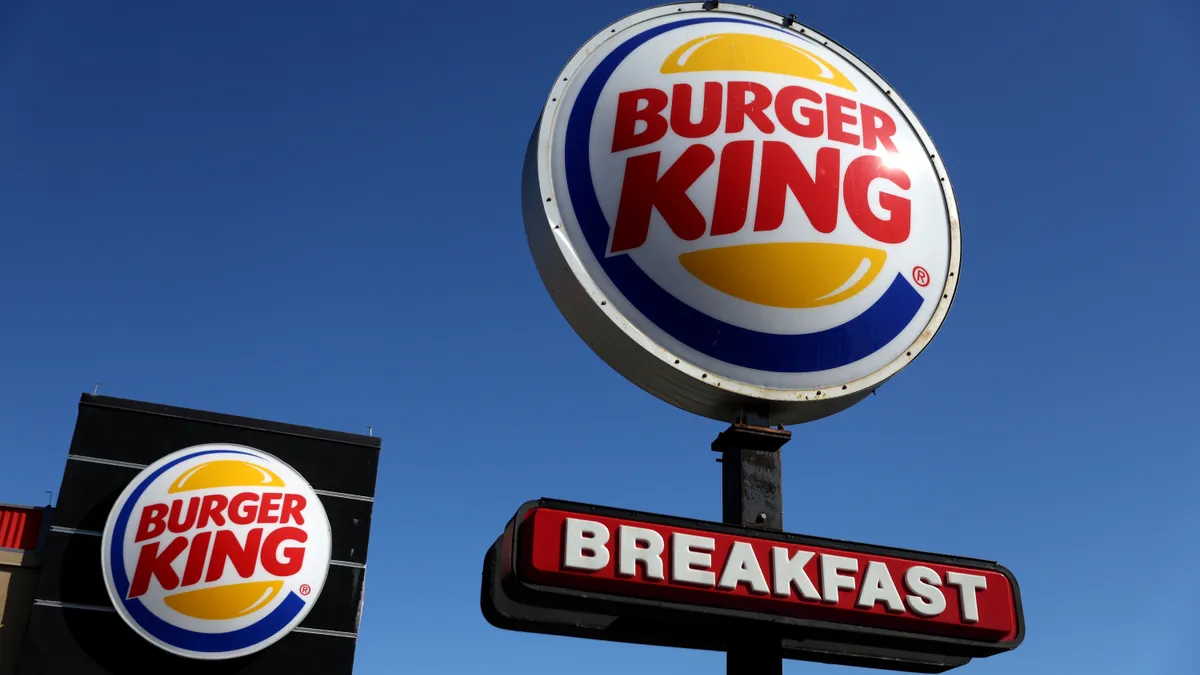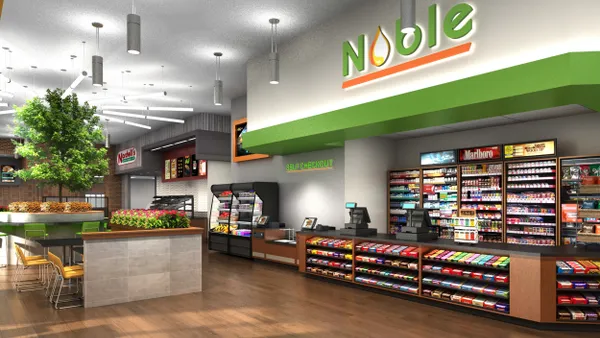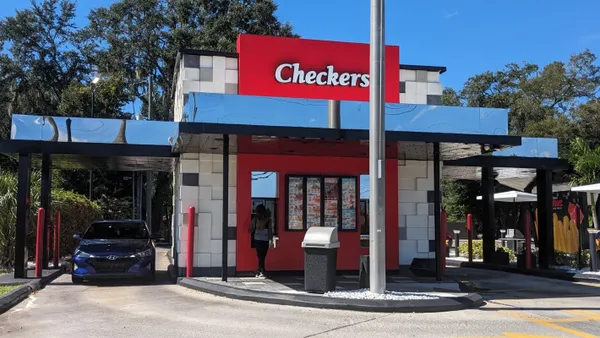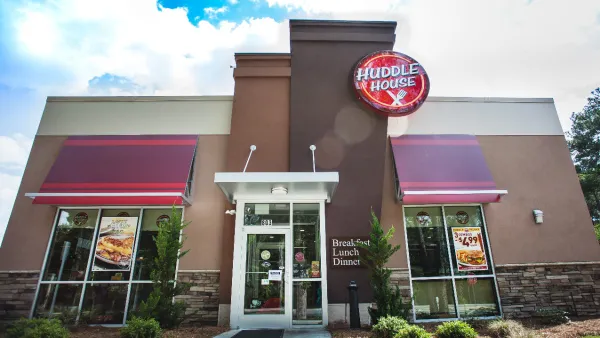Dive Brief:
- Premier Kings, a 172-unit Burger King franchisee, declared bankruptcy in late October, according to court filings.
- The company began experiencing “operational instability” in 2022 following the untimely death of owner Manraj “Patrick” Sidhu, who was the sole stakeholder and manager, per court documents.
- Earlier this year, Premier Cajun Kings, which operated 19 Popeyes units and was also owned by Sidhu, declared bankruptcy.
Dive Insight:
Premier Kings marks the latest bankruptcy for a large Burger King operator, with 115-unit Meridian Restaurants Unlimited and 90-unit Toms King declaring bankruptcy during the first quarter of this year. Parent company Restaurant Brands International has been working with franchisees to transition restaurant portfolios to other operators.
During the past few quarters, RBI has prioritized distressed situations, closing unviable restaurants and cleaning up some portfolios, CFO Matt Dunnigan said last week during the company’s earnings call. With Meridian, RBI bought 32 units while other operators bought 38 units. Meridian asked to close 21 remaining restaurants as well. The franchisee previously closed 23 of its units in April.
Premier Kings — which was founded in 2009 and has locations in Alabama, Georgia, Tennessee, South Carolina and Florida — has declined steadily since 2020. That year, the company’s sales were $255 million, which dropped to $233.3 million in 2021. Premier Kings had 3,605 employees as of Oct. 25. In 2022, the company’s sales dropped to $223 million, and it had a net operating loss of $27 million.
Following Sidhu’s death, the company experienced “tremendous uncertainty and disruption in the business,” according to the filing. It also faced macroeconomic challenges, including the impact of the COVID-19 pandemic on operations as well as “high inflation, increased borrowing rates, and increasingly limited qualified labor force.”
The company, under Sidhu’s estate representative, determined that selling Premier King’s assets was the next step in preserving the company’s value and maximizing returns to creditors. It engaged Raymond James & Associates to solicit interest in the assets.
However, the company continued to face low performance and growing losses and had to close several restaurants to avoid further losses and to try and stabilize the business for a sale. These attempts didn’t prevent insolvency, and the company had to declare bankruptcy. The operator will continue the sales process alongside its bankruptcy proceedings.
RBI has been working to improve franchisee profitability and traffic as part of its Reclaim the Flame program, which launched last year. The company has invested $200 million in a remodel program and has already seen increased returns above initial expectations at redesigned locations, RBI CEO Josh Kobza said during the recent earnings call. Since the launch of this program, which also included additional marketing spend, the company has seen “profitable traffic growth and a healthy reinvestment appetite,” Kobza said, who added that RBI is confident that it is on the right path to modernize its system and boost unit-level economics.














